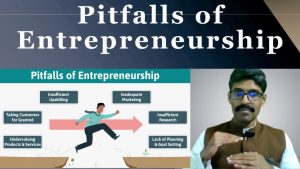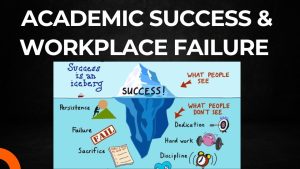The Insider Guide to Careers
Insider information, secrets and tips about getting hired and building careers. For employees and job candidates.
One of the tough choices today is choosing a career when you have little idea what the future job market will look like. Let us look at a couple of options to make this choice easier.
In the past, corporate jobs and academia highly valued structured learning. When one finished an undergrad degree, you continued your career in the same domain. For a long time, one needed an undergraduate degree in CS to be considered for product manager jobs in companies like Google and Facebook. They were not open to looking at MBA degree holders. One spent their entire careers in one field and retired as a VP, SVP or CEO. A choice of fate when choosing your undergrad degree dictates what will happen throughout your career. Why should your choices at age 17-18 dictate your life?
Even for PhD degrees, preference was always given to students from the same specialization during undergrad. Cross-functional research in engineering and tech schools used to be a joke. Once one finishes a doctoral degree in a specific area, one gets absorbed into academia or industry to continue research in the same domain. Again, undergrad choice of specialization dictates most of one’s academic life as a Professor.
The world of the 21st century has little connection with the world of the past. In the present, corporate jobs have become very complicated. The CEOs and VPs handle pressures from customers, competitors, employees, society, government, and the macroeconomic environment. It is about more than just your job; one needs to work with multiple stakeholders and convince them that their interests are taken care of. A holistic choice of skills has an extensive range of people, communication, business, and technical skills. The workplace is more demanding of each employee even as it is willing to pay higher to compensate for the niche skills that employees bring to the table.
Every company is looking for an edge that the employees can provide. Since all companies have the same Job Descriptions, hire from the same talent pool, and observe employees switching jobs rapidly to competitors, it has become challenging to maintain any competitive advantage in the marketplace. Hence, companies try to attract non-traditional employees to the workplace and get value from them in a way their competitors do not. One place where there has been good progress in the US is to target gender and racial diversity. This move has proven valuable in companies looking at problems with a fresh set of eyes. Unfortunately, many companies stop with these surface markers of diversity. They need to find people who think differently. They could be from different diversity groups or just people with varying experiences of life who are from the majority groups.
People need to develop sections of their skill inventory at different points of time. This skill development can only happen through continuous learning, where they master technical skills early on and pick up business and communication skills later. Another radical way would be to pick up communication and business skills first and technical skills later. Since most universities do not teach this way, this path would require much self-learning, unlearning, and reskilling through non-traditional channels like MOOC and YouTube courses.
A common question for undergraduates is how to pick up computer science (CS) skills. The answer is that not everyone needs to become a great coder. Computer Science careers can mean many things besides being a front-end, back-end or full-stack coder. One can also excel in CS domains like Machine learning, Data Analysis, Operations Research (OR), and Statistics. These are valuable skills that will help you throughout your life. Mechanical and Civil Engineering has a lot of overlap with OR, and OR has a lot of overlap with CS. Material Science has a lot of overlap with Electrical Engineering. So, do not try to be someone who you are not. Play to your strengths. Do not become a coder because everybody else is doing it; do it if you love spending many hours delving into the world of code without batting an eyelid.
The great discoveries of the future will happen through people applying insights from different disciplines. Because of pressure from industry, academia, and research journals, there is a feeling that one has to begin early in one’s career to excel in a field. Stories of Bill Gates and Mark Zuckerberg add to the mystique. People forget that in addition to having started early, both these entrepreneurs were from very privileged families, which gave them a substantial leg up in life as they started their business careers.
The other misleading idea is the 10,000-hour rule. It states that if someone spends 10,000 hours learning with the utmost interest, they will be an expert. It doesn’t say that a dunce would become a maestro just by spending 10,000 hours on a task. A better way to look at the world of the future is to create a skill inventory of skills to pick up and check some of the boxes in every job and company one joins.
You will move jobs constantly, unlike the generation of your parent or grandparents. Whatever job you are in, give your 100% and learn from it. For example, learn to be a production engineer early in your career, even if the job pays peanuts. The business and leadership skills you will learn will help you throughout your career. You do not need to be a specialist to succeed in your career. You can spend 2-3 years learning one job and then move on to other jobs where you learn new skills. By being a generalist, you get a chance to explore different workplaces, sectors, and functions. You can then decide much later where your strengths lie and choose your career where you will spend your decade at work. I have a friend who was a mechanical engineer and did his PhD in fluid flow and mechanics from the University of Minnesota. After a decade of investigating blood flow in arteries inside Pharma companies in the Midwest USA, he was recruited by Facebook to become a lead software engineer in their Menlo Park HQ to apply Machine Learning to complex optimization problems.
There is nothing called a long-term career. Nobody knows what the job market will be 10-15 years later. All the hype around AI and ML are mere statements created by oracles who pretend to know the future. They know as little or as much as you know about what tomorrow will bring. If you want to be intelligent and strategic, gaining a Swiss Army Knife range of skill sets in different areas is better. For example, applying Machine Learning to the machine shop or road construction is a job no CS student can solve, as they have no idea what these non-traditional sectors are. Hence, the need will be for Mechanical and Civil Engineers who also understand Machine Learning.
You will never know how your interests will help you in life. Steve Jobs’s love for calligraphy gave us all the beautiful fonts we see in documents. Sundar Pichai’s undergraduate degree in metallurgy and master’s degree in material science never seem to have hurt his career prospects in the tech sector. When working at Samsung Korea, I remember hearing that Sundar was deputed to the Suwon Campus (the HQ) to troubleshoot a fraying Samsung-Google Android partnership. Coming from India, solving knotty problems in a tense environment is never too big a deal. Because of his people skills, Sundar was entrusted to salvage the partnership. He did so, emerging with flying colours, paving the stepping stone to becoming the CEO. As Steve Jobs once said,
“You can’t connect the dots looking forward; you can only connect them looking backwards. So, you have to trust that the dots will somehow connect in your future. You have to trust in something – your gut, destiny, life, karma, whatever. This approach has never let me down, and it has made all the difference in my life.”
For more such articles, add me on Linkedin or join my Whatsapp community to ask me questions.



